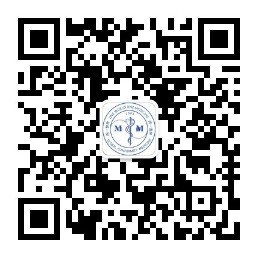目的探讨关节镜辅助复位内固定治疗SchatzkerⅠ、Ⅱ型胫骨平台骨折的疗效。方法选择60例SchatzkerⅠ、Ⅱ型胫骨平台骨折患者为观察对象,用抛硬币法随机分为镜下组与对照组,各30例。其中镜下组采用关节镜辅助复位内固定+植骨治疗,对照组采用开放复位内固定+植骨治疗。对比两组患者围术期指标、随访结果及影像学检查结果。结果镜下组患者的手术时间、手术切口长度、术中出血量、透视次数、住院时间、下床行走时间、完全负重活动时间均短/少于对照组,差异均有统计学意义(均P<0.05),但两组的切口愈合情况、骨折复位优良率差异无统计学意义(均P>0.05)。术后3个月,镜下组的美国特种外科医院(HSS)评分高于对照组,关节活动度(ROM)大于对照组(均P<0.05),但两组的VAS评分差异无统计学意义(P>0.05)。与术后3个月相比,两组术后1年的VAS评分降低,HSS评分提高,ROM增大(均P<0.05);但术后1年的VAS评分、HSS评分、ROM比较,差异均无统计学意义(均 P>0.05)。镜下组患者术后1年的胫骨近端内侧角(MPTA)大于术前且大于对照组(P<0.05);镜下组10周内的骨折愈合率明显高于对照组(P<0.05);两组患者术后1年的K-L分级优于术前(P<0.05),但两组间比较差异无统计学意义(P>0.05)。结论关节镜下复位内固定治疗SchatzkerⅠ、Ⅱ型胫骨平台骨折,疗效确切,骨折愈合快,可早期负重,关节功能恢复好,软骨退变轻,而且可同时微创处理关节内损伤,优势明显,值得推广应用。
当前位置:首页 / 关节镜辅助复位内固定治疗胫骨平台骨折的疗效分析
论著
|
更新时间:2023-05-23
|
关节镜辅助复位内固定治疗胫骨平台骨折的疗效分析
Efficacy analysis of arthroscopic-assisted reduction and internal fixation in the treatment of tibial plateau fracture
微创医学 20231802期 页码:165-170
作者机构:广西医科大学第一附属医院骨关节外科,广西南宁市530021
基金信息:*通信作者
- 中文简介
- 英文简介
- 参考文献
ObjectiveTo investigate the efficacy of arthroscopic-assisted reduction and internal fixation in the treatment of Schatzker type I and Ⅱ tibial plateau fractures. MethodsA total of 60 patients with Schatzker type I or Ⅱ tibial plateau fractures were selected as the observation objects and randomly divided into an endoscopic group and a control group by the coin tossing method, with 30 cases in each group. The endoscopic group was treated with arthroscopic-assisted reduction and internal fixation + bone grafting, and the control group was treated with open reduction and internal fixation + bone grafting. The perioperative indicators, follow-up results and imaging examination results were compared between the two groups. ResultsThe operation time, surgical incision length, intraoperative blood loss, fluoroscopy times, hospital stay, walking time and full weight-bearing activity time in the endoscopic group were all shorter/less than those in the control group, with statistically significant differences (all P<0.05), but there were no statistically significant differences in incision healing and the excellent and good rate of fracture reduction between the two groups (all P>0.05). Three months after surgery, the hospital for special surgery (HSS) score was higher and the range of motion (ROM) was larger in the endoscopic group as compared with those in the control group (all P<0.05), but there was no statistically significant difference in the VAS score between the two groups (P>0.05). Compared with those 3 months after surgery, the VAS score decreased, while the HSS score and ROM increased in both groups 1-year after surgery (all P<0.05). However, there were no statistically significant differences in the VAS score, HSS score and ROM between the two groups 1-year after surgery (all P>0.05). The medial proximal tibial angle (MPTA) 1-year after surgery in the endoscopic group was greater than that before surgery and that in the control group (P<0.05). The fracture healing rate in the endoscopic group within 10 weeks was significantly higher than that in the control group (P<0.05). The K-L classification of the two groups 1-year after surgery were better than that before surgery (P<0.05), but there was no statistically significant difference between the two groups (P>0.05). ConclusionArthroscopic reduction and internal fixation in the treatment of Schatzker type Ⅰ and Ⅱ tibial plateau fractures has definite curative effect, which can achieve fast fracture healing, early weight bearing, good joint function recovery and less cartilage degeneration, minimally invasive treatment of intra-articular injuries can be performed at the same time, with obvious advantages, and is worthy of popularization and application.
-
无




 注册
注册 忘记密码
忘记密码 忘记用户名
忘记用户名 专家账号密码找回
专家账号密码找回 下载
下载 收藏
收藏
